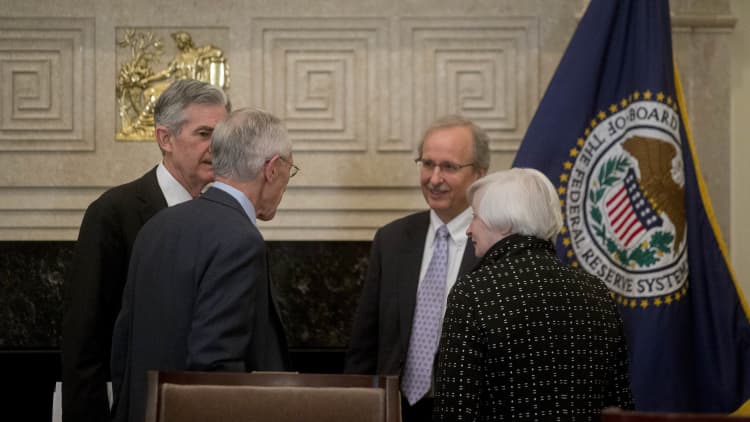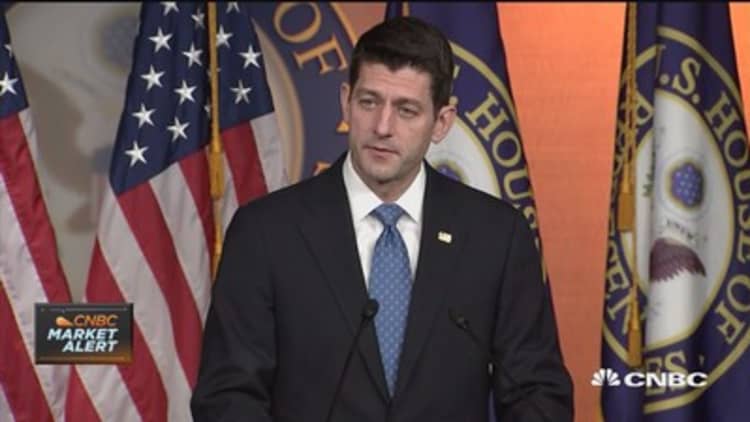
Investors widely believe that the U.S. central bank is on its path of higher interest rates at least partly because Federal Reserve officials see President Donald Trump's pro-growth agenda heating up the economy this year.
However, minutes from the Federal Open Market Committee meeting in March indicate that central bank members actually seem a little more pessimistic about the chances for any immediate boost to the economy that results from Trump's policies.
Officials now seem to believe that any lift from Trump's plans to cut taxes, lower regulations and increase infrastructure spending won't happen until at least 2018.
At the December meeting, FOMC members indicated their belief that stronger fiscal policy was on the way, and they boosted their growth forecasts accordingly.
But at the March meeting, they "pushed back the timing of when those policy changes were anticipated to take effect," the meeting summary stated.
Economic projections were little changed after the March meeting, though that was due primarily to a belief that the stock market would strengthen and the U.S. dollar would not appreciate as much as previously thought.
At the same time, risks to those forecasts for gross domestic product growth "were seen as tilted to the downside." However, more aggressive fiscal policy — when it is implemented — would then pose "upside risks," the minutes said.
The Fed voted to raise its benchmark short-term lending rate a quarter point at the meeting, the second such increase since December. The move came amid heightened expectations for economic growth, though the Trump agenda recently has stumbled on political roadblocks. Efforts to overturn the Affordable Care Act, or Obamacare, have failed so far, and the market does not expect tax cuts to come until at least the summer.
Fed officials appear to have taken note of the potential for more Washington gridlock.
"Participants continued to underscore the considerable uncertainty about the timing and nature of potential changes to fiscal policies as well as the size of the effects of such changes on economic activity," the minutes said.
Moreover, several members "now anticipated that meaningful fiscal stimulus would likely not begin until 2018. In view of the substantial uncertainty, about half of the participants did not incorporate explicit assumptions about fiscal policy in their projections."
There were other worries about the Trump agenda as well.
The president has come down strongly against illegal immigration and has vowed tighter borders.
Some Fed officials and their business contacts "saw downside risks to labor force and economic growth from possible changes to other government policies, such as those affecting immigration and trade."
In addition to his immigration stance, Trump also has been critical of global trade deals, though recent changes the administration outlined to the North American Free Trade Agreement were viewed as minimal.
Watch: Market dips on Fed, Ryan comments



